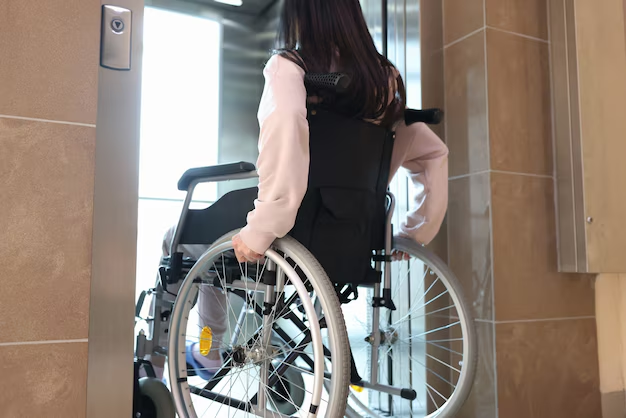Your Guide to Will Medicare Pay For Lift Chair Recliner
What You Get:
Free Guide
Free, helpful information about Medicare Insurance and related Will Medicare Pay For Lift Chair Recliner topics.
Helpful Information
Get clear and easy-to-understand details about Will Medicare Pay For Lift Chair Recliner topics and resources.
Personalized Offers
Answer a few optional questions to receive offers or information related to Medicare Insurance. The survey is optional and not required to access your free guide.
Will Medicare Cover a Lift Chair Recliner for You? Here’s the Scoop
When mobility becomes a challenge, a lift chair recliner can make a world of difference. These chairs not only provide comfort and relaxation but also help individuals stand up with ease. As the aging population grows, the question of whether Medicare covers the cost of a lift chair recliner has become increasingly relevant to many. This is an essential inquiry for seniors and their loved ones looking to make life a bit easier.
Medicare’s Policy on Lift Chair Recliners
Medicare, the federal health insurance program, does indeed offer some assistance when it comes to lift chair recliners. However, coverage is not as straightforward as simply buying a chair and sending the bill to Medicare. Medicare Part B may cover a portion of the cost, but it’s important to understand the specifics:
Durable Medical Equipment (DME): The motorized lift mechanism in the chair is considered durable medical equipment. Medicare Part B helps cover DME if it is deemed medically necessary by your doctor to treat a condition or injury.
Doctor’s Prescription: You must have a prescription from a Medicare-enrolled doctor stating that the lift chair is "medically necessary." This requirement is crucial, as Medicare won’t cover lift chairs purchased for comfort or convenience alone.
Coverage Limits: Medicare typically covers only the lift mechanism, often about 80% of the approved amount, after you’ve met your Part B deductible. The remaining cost of the chair itself is out-of-pocket for most individuals.
Navigating the Financial Terrain
If Medicare only covers part of the cost, you might wonder how to handle the rest of the expense. Here are some options to explore:
Supplemental Insurance: Consider purchasing a Medigap policy. Some Medigap plans might cover the additional expenses that Medicare doesn’t, making your lift chair more affordable.
Medicaid Support: For those also eligible for Medicaid, additional financial support may be available. Each state operates differently, so check with your local Medicaid office for specific coverage details.
Veterans Benefits: If you or your spouse served in the military, VA benefits might provide additional support for medical equipment, including lift chairs.
Expanding Your Financial Support Network
Apart from lift chair expenses, understanding and accessing financial assistance programs can be crucial for those on fixed incomes. Consider these pathways:
Government Assistance Programs: Explore other government aid, such as heating assistance, rental support, or food programs, to better allocate budget for medical needs.
Debt Relief Solutions: Seniors facing mounting medical bills or credit card debt might benefit from debt relief solutions that offer management plans or negotiation services.
Educational Grants and Programs: For seniors interested in continuing education or retraining for new job opportunities, educational grants or scholarships designed for older adults can ease financial burdens associated with lifelong learning pursuits.
Taking advantage of available resources can ease the financial pressures, allowing for better focus on health and quality of life.
Here’s a quick reference list to help navigate financial assistance:
- 📊 Medicare Supplement (Medigap): Helps cover what's not paid for by Medicare.
- 🏠 Social Services Aid: Check eligibility for local programs assisting with housing and utilities.
- 🇺🇸 Veterans Affairs (VA) Benefits: Extra support for veterans needing DME.
- 💳 Credit Counseling: Guidance on managing medical debt and credit card expenses.
- 🎓 Educational Opportunities: Grants and scholarships for senior retraining or education.
- 🪙 Debt Relief Programs: Services designed to alleviate unsecured debt pressures.
Exploring these options can be the key to a more comfortable and financially secure future.
What You Get:
Free Medicare Insurance Guide
Free, helpful information about Will Medicare Pay For Lift Chair Recliner and related resources.

Helpful Information
Get clear, easy-to-understand details about Will Medicare Pay For Lift Chair Recliner topics.

Optional Personalized Offers
Answer a few optional questions to see offers or information related to Medicare Insurance. Participation is not required to get your free guide.


Discover More
- Am I Elgible For Medicare
- Am I Enrolled In Medicare
- Am I Qualified For Medicare
- Are Adult Diapers Covered By Medicare
- Are Chemotherapy Drugs Covered By Medicare Part d
- Are Colonoscopies Covered By Medicare
- Are Covid Tests Covered By Medicare
- Are Cpap Machines Covered By Medicare
- Are Cpap Supplies Covered By Medicare
- Are Dental Implants Covered By Medicare
